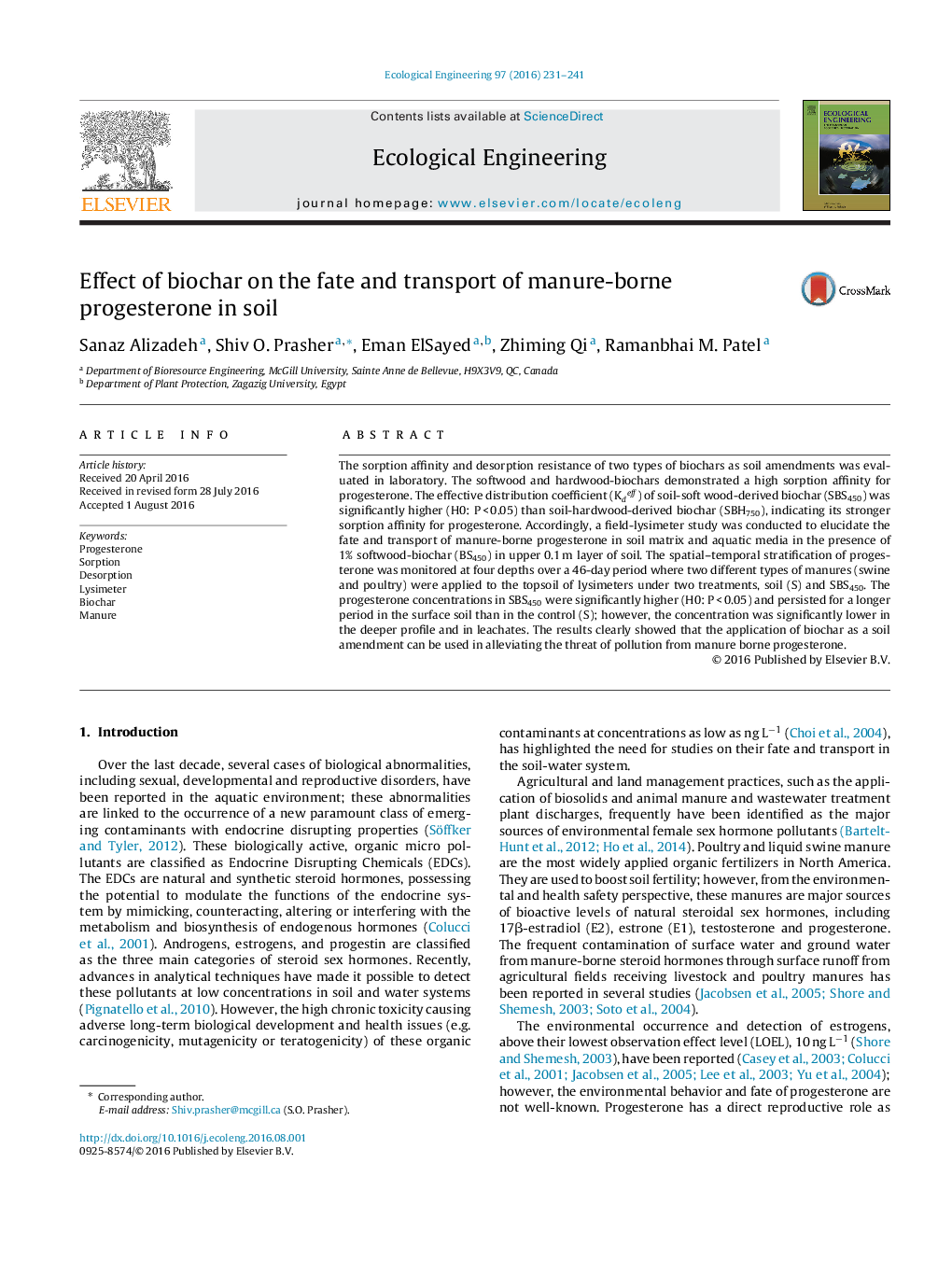| Article ID | Journal | Published Year | Pages | File Type |
|---|---|---|---|---|
| 4388382 | Ecological Engineering | 2016 | 11 Pages |
The sorption affinity and desorption resistance of two types of biochars as soil amendments was evaluated in laboratory. The softwood and hardwood-biochars demonstrated a high sorption affinity for progesterone. The effective distribution coefficient (Kdeff) of soil-soft wood-derived biochar (SBS450) was significantly higher (H0: P < 0.05) than soil-hardwood-derived biochar (SBH750), indicating its stronger sorption affinity for progesterone. Accordingly, a field-lysimeter study was conducted to elucidate the fate and transport of manure-borne progesterone in soil matrix and aquatic media in the presence of 1% softwood-biochar (BS450) in upper 0.1 m layer of soil. The spatial–temporal stratification of progesterone was monitored at four depths over a 46-day period where two different types of manures (swine and poultry) were applied to the topsoil of lysimeters under two treatments, soil (S) and SBS450. The progesterone concentrations in SBS450 were significantly higher (H0: P < 0.05) and persisted for a longer period in the surface soil than in the control (S); however, the concentration was significantly lower in the deeper profile and in leachates. The results clearly showed that the application of biochar as a soil amendment can be used in alleviating the threat of pollution from manure borne progesterone.
